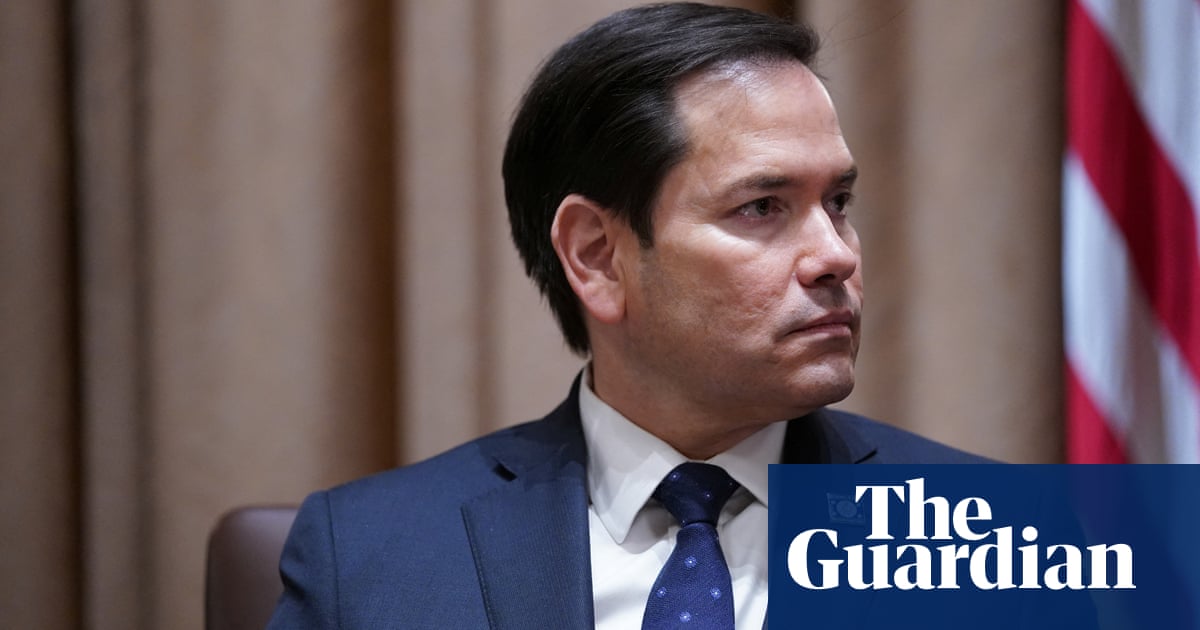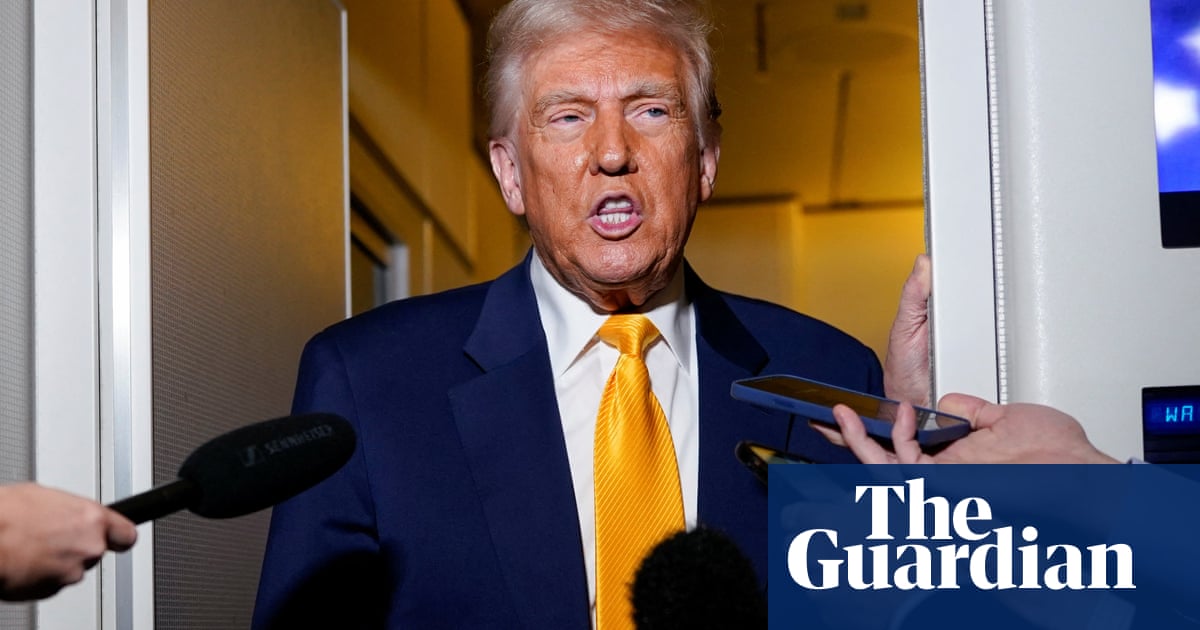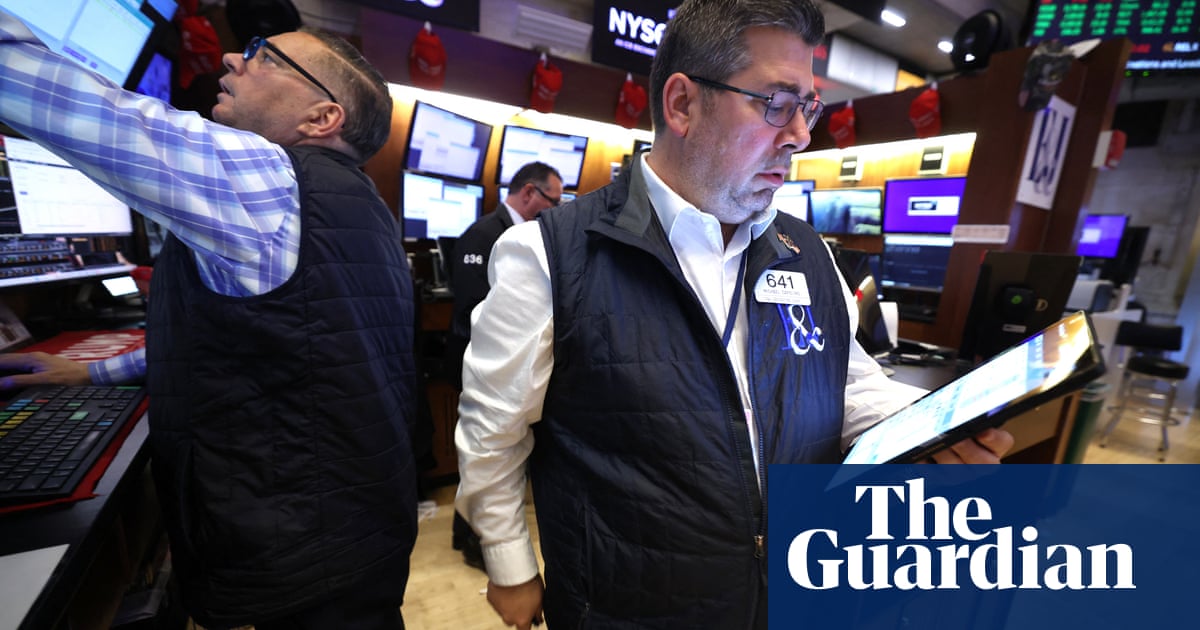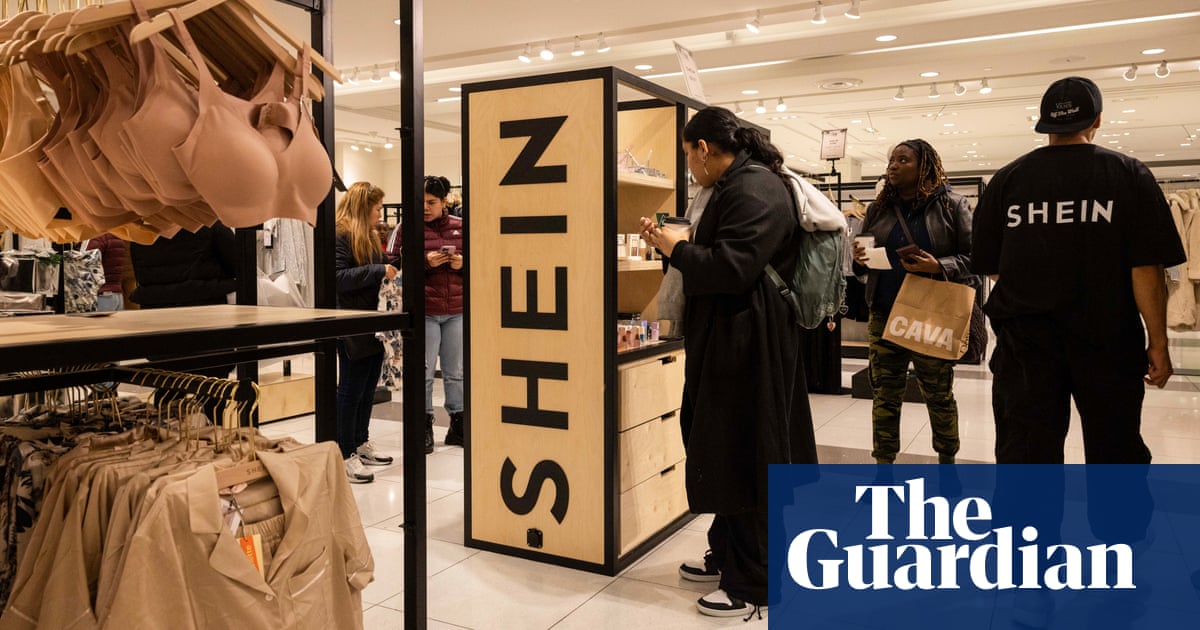Australia, like countries all over the world, now faces the invidious task of negotiating a way around the US’s new tariff wall, finding a way into the good graces of an administration that has proven itself capricious, especially with allies.
The 10% tariff rate imposed on all Australian imports has not been paused, and Australia’s negotiating position is complicated by a federal election: the government is in caretaker mode, and those seeking to “make a deal” may not have that responsibility next month.
But beyond Australia’s own uncertainty, in dealing with the US there is the question of with whom to negotiate.
Trade officials and diplomats agree Australia needs to bring discipline and unity to negotiations with a US administration that is its opposite.
Multiple sources on both sides of the Pacific say the president is most swayed by the “last voice in the room”, underscoring the imperative for Australia to present a consistent message to the key figures who might have the president’s ear.
If it needed further demonstration, this week has showcased the unvarnished reality of an erratic global superpower. In an administration so unpredictable, where does the first phone call go and who has the final say?
Key players in the US tariff regime
Donald Trump
President of the United States
Donald Trump says he’d been flooded with entreaties from foreign leaders since announcing his tariff regime. Photograph: Shawn Thew/UPI/REX/Shutterstock
The extraordinary “liberation day” announcement was just the beginning: a comprehensive global tariff regime (with some notable exceptions) triggered a stock market crash, followed by the announcement of a 90-day pause on (almost) all tariffs, which saw the stock market soaring and then sinking again, followed by an escalation with China.
China has been hit with an increased tariff of 145%, while other tariffs will be “paused” – reduced to the 10% “baseline” rate imposed on Australia, the UK and others.
Despite Australia having a free-trade agreement (ratified in 2005) and running a trade deficit with the US (a surplus from the American position), Trump’s position is Australia deserves to be hit with tariffs because of trade barriers he regards as protectionist.
“Australia bans – and they’re wonderful people and wonderful everything – but they ban American beef. And, you know, I don’t blame them, but we’re doing the same thing right now, starting at midnight tonight,” he said on 3 April.
Despite extraordinary financial tumult in the days since, Trump told a fundraising dinner this week the tariffs were working as a negotiating tool to bend other countries to his will. He said in the wake of the tariff announcement – but before they’d come into effect and crashed the stock market – that he’d been flooded with entreaties from foreign leaders.
“These countries are calling me up, kissing my ass, [saying] ‘make a deal, please, please, sir, make a deal, I’ll do anything, I’ll do anything, sir’.”
Howard Lutnick
US secretary of commerce
Howard Lutnick has singled out Australia for criticism over its trading relationship with the US. Photograph: Will Oliver/EPA
The famously combative Lutnick (the New Republic ran a piece this week headlined Everybody Hates Howard Lutnick), has been a key spear-carrier for Trump’s tariff regime, though his own views on their effectiveness are said to be “more nuanced” than his regular television appearances would suggest.
Lutnick has singled out Australia for criticism over its trading relationship with the US.
“Our farmers are blocked from selling almost anywhere. Europe won’t let us sell beef, Australia won’t let us sell beef,” Lutnick told a television interview. He dismissed Australian arguments the beef restriction was made for biosecurity reasons.
“This is nonsense. This is all nonsense. What happens is they block our markets.”
Lutnick told Fox News he was in the room this week when Trump offered an olive branch of potential “bespoke” negotiations – country by country – to dismantle the tariff walls.
“They started calling and making real offers, finally, finally really digging in and understanding how they treat the US unfairly and really offering us a clear path to where we could do really good deals with these countries.”
Trump has put a 90-day pause on the imposition of tariffs above 10%, except on China. Beijing’s refusal to countenance negotiation, Lutnick said, meant it was treated with the opposite to a pause on tariffs: further tariff hikes – to 145% – a rate so high it is, in practice, effectively a trade embargo.
“Donald Trump is the best negotiator that there is.”
Peter Navarro
Director of the office of trade and manufacturing policy
Peter Navarro … ‘Australia is just killing our aluminium market.’ Photograph: Brendan Smialowski/AFP/Getty Images
The man who went to jail rather than give evidence to Congress about the January 6 insurrection is also a fierce advocate for the president’s tariff regime, and an equally vociferous critic of Australia.
He singled out aluminium imports from Australia as being exploitative.
“The era of unchecked imports undermining American industry is over. The United States will no longer be a dumping ground for heavily subsidised and unfairly traded aluminum,” he wrote in USA Today.
Navarro compared Australia to “strategic competitors” China and Russia.
“Nations considered US allies also have been a big part of the problem. Consider Australia. Its heavily subsidised smelters operate below cost, giving them an unfair dumping advantage, while Australia’s close ties to China further distort global aluminum trade.”
Navarro has argued Trump’s tariff regime would end the unfair exploitation of the US.
“Australia is just killing our aluminum market,” he told CNN. “President Trump says, ‘no, no we’re not doing that any more’.”
He accused Australia of “flooding” the US market, “killing” it and leaving the American domestic industry “on its back”.
In 2024, Australian aluminium accounted for less than 2% of US aluminium imports.
Navarro has previously quoted a fictional character, Ron Vara – an anagram of his own surname – as a source of economic wisdom. Elon Musk this week said Navarro was “dumber than a sack of bricks”.
Jamieson Greer
US trade representative
Jamieson Greer claims Australia has harmed US through non-tariff trade barriers. Photograph: Nathan Posner/SOPA Images/REX/Shutterstock
His office produces an annual barriers to trade report, which for 2025 singled out Australian biosecurity laws, the Pharmaceutical Benefits Scheme and social media regulation as unfair Australian trade practices.
Greer has been, along with Lutnick and Navarro, a spear-carrier for the tariff regime.
Under questioning before the Senate finance committee, Greer said that, despite a free-trade agreement, Australia harmed US through non-tariff trade barriers.
“We’re addressing the $1.2tn deficit – the largest in human history – that President [Joe] Biden left us with. We should be running up the score against Australia.
“Despite the agreement, they ban our beef, they ban our pork. They’re getting ready to impose measures on our digital companies.”
Greer also told the committee: “Australia has the lowest rate available under the new program.”
This is not correct.
Russia, Belarus, North Korea and Cuba were all exempted from the tariff regime.
Administration insistence that Russia was exempted because it does no “meaningful trade” with the US are also not correct.
According to statistics from Greer’s own office, Russia did $3.5bn worth of trade in 2024.
Mark Warner
Senator for Virginia
Mark Warner … why was Australia ‘whacked with a tariff?’ Photograph: Mark Schiefelbein/AP
The Democratic senator was the man questioning Greer in the Senate finance committee.
“On Australia, we have a trade surplus with Australia, we have a free-trade agreement, they are an incredibly important national security partner – why were they whacked with a tariff?”
When Greer responded that Australia imposes biosecurity bans on some US meats and plans to regulate American tech giants, Warner was livid in riposte.
“Sir, you’re a much smarter person than that answer: the idea that we are going to whack friend and foe alike, and particularly friends with this level, is both, I think, insulting the Australians, undermines our national security and, frankly, makes us not a good partner going forward.”
Joe Courtney
Co-chair of the Congressional Friends of Australia Caucus
Joe Courtney … ‘Australia is a key strategic ally for our country.’ Photograph: House.gov
A longtime advocate for Australia and its alliance with the US (rewarded with an Order of Australia for his services no less), Courtney has described the tariffs imposed on Australia as an “insult”.
“Australia is a key strategic ally for our country. They are positioned in the Indo-Pacific at a place where, again, tensions are sky high,” Courtney said.
“Instead, what we’re seeing is a completely needless, almost insult to the people of Australia by raising tariffs on Australian products coming into this country.”
Greg Norman
Australian former golfer
Greg Norman … ‘I’ve done it in the past; I would do it again.’ Photograph: Mike Ehrmann/Getty Images
The two-time major winner, who dined with Anthony Albanese on “liberation day” eve, has said he is willing to once again act as a diplomatic conduit between Australia and Trump personally. The US president, a lover of golf, has played regular rounds with the former world No 1.
In 2016, Norman reportedly passed on Trump’s personal phone number to the then Australian prime minister Malcolm Turnbull after Trump unexpectedly won the US presidential election but couldn’t be contacted by the Australian government.
“If I can give one tiny bit of help that can help going forward between our two nations, I would do it,” he said last month.
“I’ve done it in the past; I would do it again.”
Norman said Trump was aware of the significance of the US-Australia relationship.
“He understands the extremely tight connection between Australia and the US, [which] I call big brother-little brother, that’s how I worded it with him. And I said the importance of that has been decades and decades old, and it’s not going to go anywhere.”

 German (DE)
German (DE)  English (US)
English (US)  Spanish (ES)
Spanish (ES)  French (FR)
French (FR)  Hindi (IN)
Hindi (IN)  Italian (IT)
Italian (IT)  Russian (RU)
Russian (RU)  22 hours ago
22 hours ago
























Comments